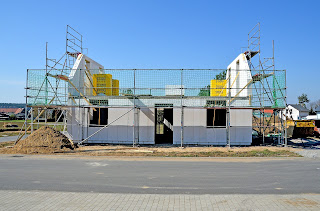The Caribbean region faces numerous challenges in providing adequate housing for its population, particularly for those living in poverty. Prefabricated houses have emerged as a viable solution to address this issue, offering numerous benefits that can significantly enhance the lives and living conditions of the poor. This article explores how prefabricated houses can transform the housing landscape in the Caribbean, promoting affordability, sustainability, and improved living standards.
Affordability
Prefabricated houses, also known as modular or prefab homes, are manufactured off-site in a controlled environment, resulting in lower construction costs compared to traditional site-built homes.
This cost-effectiveness makes prefabricated houses an attractive option for low-income individuals and families in the Caribbean. By reducing the financial burden of housing, these structures offer an affordable pathway to homeownership and an opportunity to break the cycle of poverty.
Speed and Efficiency
One of the key advantages of prefabricated houses is their speed of construction. Since most of the components are manufactured in factories, the construction process can be completed in significantly less time compared to traditional construction methods.
This speed is crucial in emergency situations such as post-disaster reconstruction or providing immediate housing for the homeless. Rapid deployment of prefabricated houses ensures that vulnerable populations have access to safe and secure shelter in a timely manner.
Quality and Safety
Prefabricated houses are built in controlled factory settings, allowing for rigorous quality control measures during manufacturing. The use of standardized designs and materials ensures consistency and precision in construction.
Additionally, these structures are engineered to withstand extreme weather conditions, including hurricanes and earthquakes, which are common in the Caribbean. By providing sturdy and resilient housing, prefabricated houses can protect the poor from the devastating effects of natural disasters.
Sustainability and Energy Efficiency
Prefabricated houses can contribute to environmental sustainability in the Caribbean. Many prefab homes incorporate eco-friendly materials, renewable energy systems, and energy-efficient designs.
These features reduce the carbon footprint and help conserve resources. Furthermore, the improved insulation and energy-efficient technologies of prefabricated houses lead to lower energy consumption and reduced utility bills, making them more affordable to maintain in the long run.
Customization and Adaptability
Contrary to common misconceptions, prefabricated houses offer a range of design options and customization opportunities. They can be tailored to meet the specific needs and preferences of the occupants, taking into account cultural, social, and environmental factors.
Additionally, prefabricated houses are designed with adaptability in mind, allowing for future expansions or modifications as families grow or circumstances change. This flexibility ensures that the housing remains suitable for the long term.
Community Development
Prefabricated houses can play a vital role in community development initiatives. By providing safe and stable housing for the poor, these structures promote social cohesion and a sense of belonging. Moreover, the construction of prefabricated houses can generate employment opportunities within the local community, boosting economic growth and empowerment.
Take in consideration
Prefabricated houses have the potential to transform the lives and living conditions of the poor in the Caribbean. Through their affordability, speed, quality, sustainability, and adaptability, these homes offer a practical and efficient solution to the region's housing challenges.
Governments, non-profit organizations, and other stakeholders should collaborate to promote the widespread adoption of prefabricated houses as a means to uplift communities, reduce poverty, and ensure a brighter future for all residents of the Caribbean.









No comments:
Post a Comment